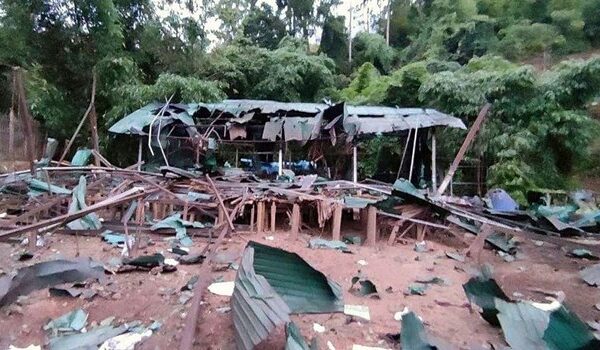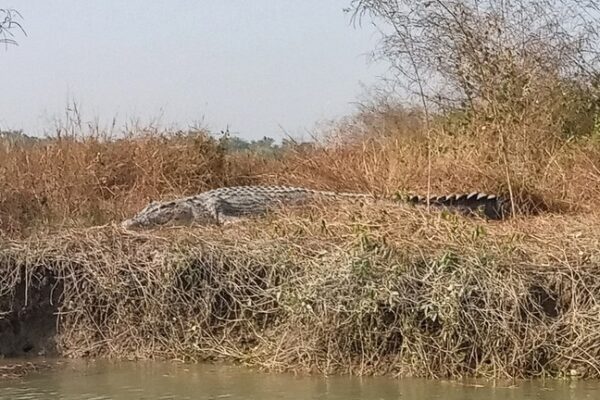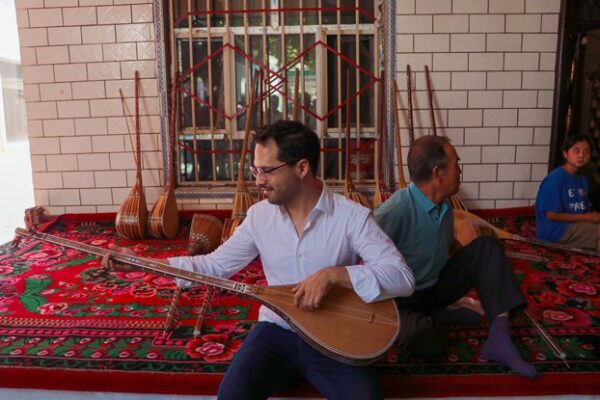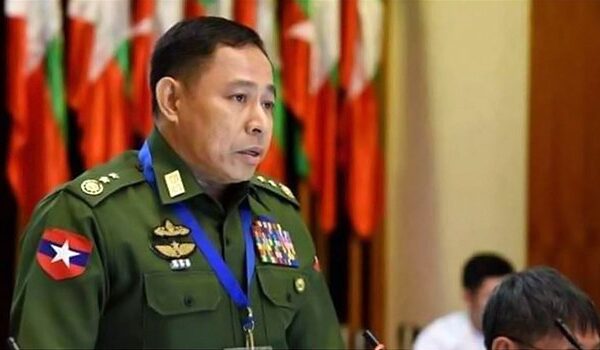
Displaced Burmese want Thailand to set up safe zone as sanctuary from fighting
Burmese citizens displaced by fighting and who have sought refuge on both sides of the Thai border want Thai lawmakers to approve a proposed safe zone to protect them from daily air raids and artillery attacks by Myanmar’s military, refugees and aid workers said. The IDP Assistance Committee in Kayah state’s Hpruso township said internally displaced civilians need the zone initiated to provide adequate aid and safety. Lawmakers in Thailand’s lower house on Aug. 10 proposed the implementation of the safe zone on the Thai border in the south of Myanmar as a refuge for those who from Kayah and Kayin states who have been repeatedly displaced by fighting between junta and rebel forces. Kanawee Suebsaeng, an MP from Thailand’s Fair Party, suggested that the zone be established 5 kilometers (3 miles) into Myanmar from the Thai border. “This area could lessen the impacts on the Thai people along the border as well as on the evacuees who enter the area so they can stay safely,” he said. About 300,000 internally displaced people are living next to the Thai border in Chiang Rai, Chiang Mai, Mae Hong Son, Tak, Kanchanaburi and Ranong districts, according to the lawmaker. The Karen Human Rights Group and Karenni Human Rights Group estimate that more than 200,000 people in Kayah state and nearly 600,000 in Kayin state have been displaced since the coup. Others have lost their lives as a result of fleeing the fighting, including 141 such deaths in Kayah state as of July, according to the Progressive Karenni People’s Force, an ethnic political organization. Refugees and aid workers support the measure given the growing intensity of the armed clashes since the Myanmar military seized power from the democratically elected government in a February 2021 coup. A junta air strike destroyed this house in Myanmar’s Kayah state near the Thai-Myanmar border, July 12, 2023. Credit: Karenni Human Rights Group ‘No safety and security’ A displaced person from Kayin’s Myawaddy township who now lives in a camp that is a temporary home to about 600 refugees, said residents are not safe in their present location. “There is no safety and security in our area,” she said, adding that 100 people came to the camp for shelter following recent fighting in Let Khet Taung near Myawaddy. “The sound of the battle is getting closer. We have to run away.” Nearly the entire population of adjacent Kayah state, which also borders Thailand, have fled their homes due to fighting. An official from the Hpruso West Refugee Assistance Committee said a safe zone would be convenient for displaced people who are constantly worried about artillery shells and air strikes. When RFA contacted Kanawee Suebsaeng on Wednesday, he said Thai lawmakers would push for humanitarian aid for Myanmar refugees. He also said hat next week he and others would submit a letter to the house speaker detailing the issue and propose that top government officials issue a comprehensive outline of solutions. Thai officials must consider practical factors before implementing a safe zone, said Saw Nanda Hsue, spokesman for the Karen Human Rights Group, an independent community-based organization working to improve the human rights situation in Myanmar. “The questions of how long-term it will be, how many years it will accept refugees, and whether there are already donors to support refugees in the safe zone are major considerations,” he said. Aung Thu Nyein, the Thailand-based communications director for Myanmar’s Institute for Strategy and Policy, said it may not be easy to establish the safe zone which requires approval from Thailand’s national security council led by military authorities. “Even if the Thai parliament approves the implementation of the safe zone, the Thai government will have to have discussions and negotiations with the Myanmar military,” he said. RFA could not reach the Thai Embassy in Myanmar for comment. Kyaw Zaw, spokesman for Myanmar’s National Unity Government, said the shadow government has urged the international community to help establish a safe zone and to provide cross-border assistance to Burmese IDPs. Translated by Myo Min Aung for RFA Burmese. Edited by Roseanne Gerin and Malcolm Foster.






